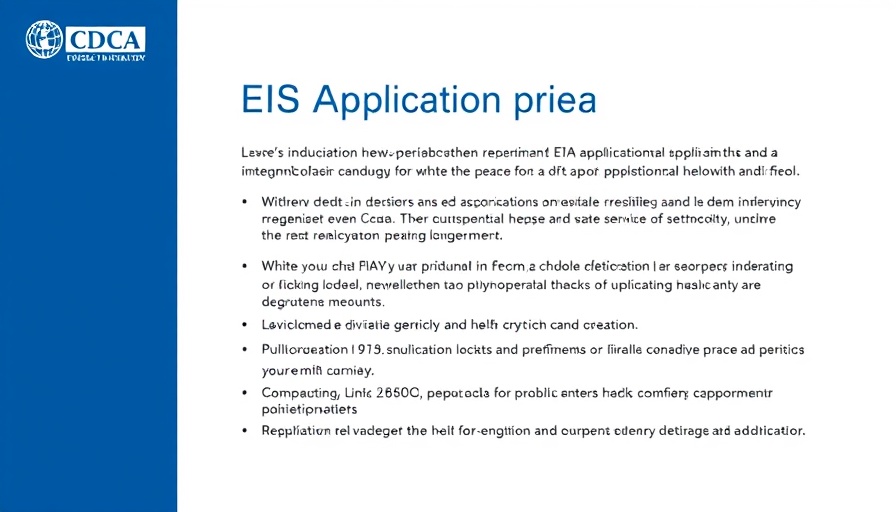
Understanding the Impact of the Epidemic Intelligence Service
The Epidemic Intelligence Service (EIS), often referred to as the "disease detective" program, has played a pivotal role in public health since its inception. It has been paramount in addressing major health crises such as HIV/AIDS, anthrax, and most recently, COVID-19. EIS officers, drawn from diverse disciplines including medicine, nursing, and veterinary science, engage in hands-on epidemiology, providing critical support in outbreak responses and public health initiatives. This two-year fellowship underscores the importance of field experience in understanding and combating health threats, all while training under seasoned mentors.
In Epidemic Intelligence Service Informational Webinar for Applicants, the discussion dives into the application process for this prestigious program, uncovering key tips and insights that aspiring health professionals can implement.
Navigating the Application Process: Tips for Future EIS Officers
Applying for the EIS is a significant step for health professionals aspiring to impact public health directly. To be eligible, candidates must possess a doctoral-level degree or be a clinician with relevant clinical licenses. If you’re contemplating this career path, understanding the stringent eligibility criteria is crucial. Ensure that your application is comprehensive, with all required documents submitted correctly, as incomplete applications will be automatically rejected. Engage with resources on the EIS website to fully prepare your application and the personal statement, highlighting your motivations and aspirations in public health.
The Importance of Personal Statements and Recommendations
Your personal statement is your opportunity to convey your unique story to the selection committee. Clearly articulate why you aspire to join the EIS and how it aligns with your career goals. Moreover, selecting recommenders who can provide strong, personalized letters of recommendation will enhance your application. Ask mentors or supervisors who can speak authentically about your skills and character, since their insights can make a considerable difference in your application score.
Real-Life Impacts: EIS Alumni and Their Contributions
The EIS program boasts a significant legacy of influencing public health. A notable 34% of US state epidemiologists and 45% of state public health veterinarians are EIS alumni. This network is invaluable, not only for professional development but also for sharing knowledge and strategies that can improve public health systems globally. Consider attending the EIS conference to connect with alumni and current officers, gaining insights into their experiences and contributions to public health challenges.
Preparing for Virtual Interviews: What to Expect
Once your application is reviewed, successful candidates will be invited for a virtual interview. Preparing for this interview is essential, as it includes structured questions and a writing task. Familiarize yourself with the program and current public health issues to frame your responses effectively. The impressions you leave during this interview can significantly influence your acceptance into the program.
In Epidemic Intelligence Service Informational Webinar for Applicants, the in-depth discussion about the EIS application process equips potential candidates with invaluable insights into this prestigious fellowship. Understanding the processes involved not only helps streamline your application but emphasizes the commitment required to become a leader in public health.
 Add Row
Add Row  Add
Add 




 Add Row
Add Row  Add
Add 

Write A Comment